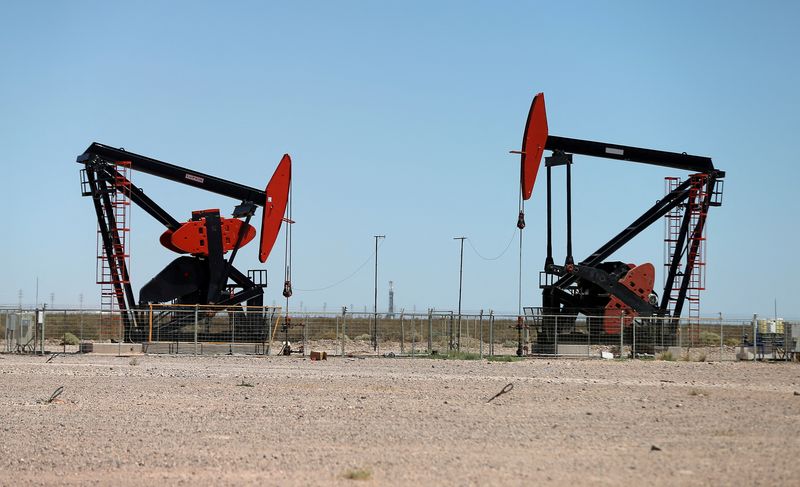By Jeslyn Lerh
SINGAPORE (Reuters) – Oil prices fell on Wednesday after industry data showed inventories swelled more than expected, though declines were capped as the market watched diplomatic efforts in the Middle East after Israel continued attacks on Gaza and Lebanon.
futures eased 50 cents, or 0.7%, to $75.54 a barrel by 0640 GMT. U.S. West Texas Intermediate crude futures shed 50 cents, or 0.7%, to $71.24 a barrel.
Crude futures settled higher in the two previous sessions this week.
“The market continues to wait for Israel’s response to Iran’s missile attack,” ING analysts said on Wednesday, adding the price strength on Tuesday was possibly due to the lack of outcome from U.S. Secretary of State Antony Blinken’s latest visit to Israel.
Blinken held “extended conversations” with Israeli Prime Minister Benjamin Netanyahu and senior Israeli leaders, urging them to get more humanitarian aid into Gaza, a senior State Department official said.
Israel on Tuesday also confirmed it had killed Hashem Safieddine, the heir apparent to late Hezbollah leader Hassan Nasrallah who was killed last month in an Israeli attack targeting the Iran-backed Lebanese militant group.
“Market participants priced for the Middle East conflict to drag for longer, with a ceasefire deal potentially seeing some gridlock,” said Yeap Jun Rong, market strategist at IG.
“China’s recent stimulus efforts may translate to some success in stabilising conditions or even drive a more sustained recovery ahead, which may positively affect oil demand,” Yeap added.
Meanwhile, U.S. crude stocks rose 1.64 million barrels last week, according to market sources, citing American Petroleum Institute figures on Tuesday, weighing on prices. Analysts polled by Reuters expected a 300,000-barrel increase in crude stocks.
Official U.S. government oil inventory data is due on Wednesday at 10:30 a.m. EDT (1430 GMT).

“With oil prices swinging from oversold to overbought territory within short time frames, maintaining a position in either side of the market can prove challenging,” Jim Ritterbusch, of Ritterbusch and Associates in Florida, said in a note.
Goldman Sachs on Tuesday said it expects oil prices to average $76 a barrel in 2025 based on a moderate crude surplus and spare capacity among producers in OPEC+, which groups the Organization of the Petroleum Exporting Countries and allies led by Russia.

